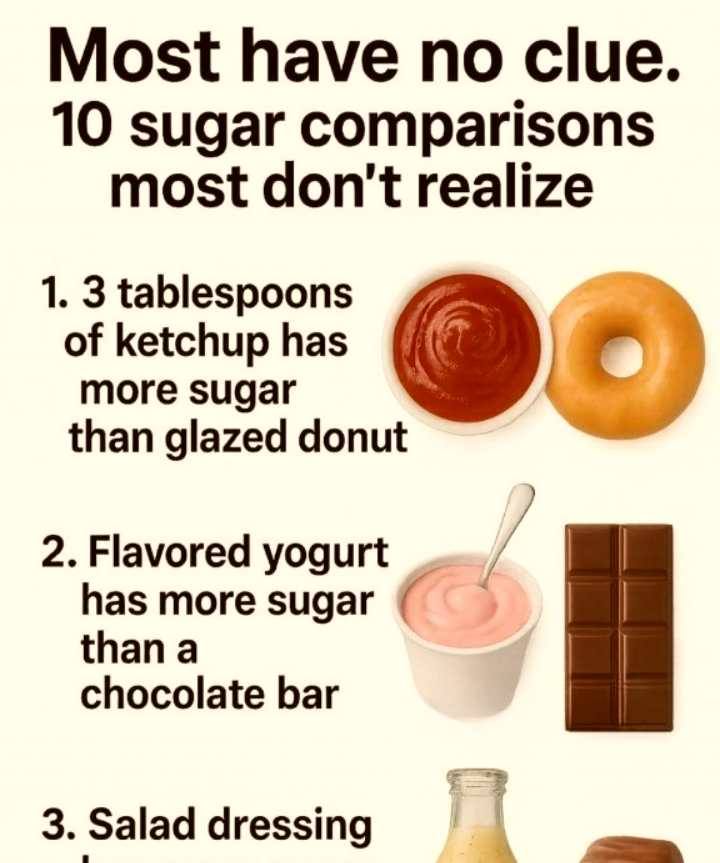ADVERTISEMENT
### 3. **Agave Syrup vs. Honey**
**What’s the Difference?**
Agave syrup and honey are both marketed as healthier alternatives to refined sugar, but they have very different compositions and effects on the body.
– **Agave Syrup**: Derived from the agave plant, agave syrup contains a higher proportion of fructose compared to glucose.
– **Honey**: A natural sweetener produced by bees, honey contains both fructose and glucose, but in a more balanced ratio.
**Health Impact**: While honey has some antioxidants and antimicrobial properties, agave syrup’s high fructose content can lead to insulin resistance and fat buildup in the liver over time. Despite being considered “natural,” agave syrup should be used sparingly, as its fructose content can have similar harmful effects as HFCS.
**Conclusion**: Honey may be the better option overall for sweetening due to its more balanced sugar profile and additional health benefits, but both should be used in moderation.
### 4. **Brown Sugar vs. White Sugar**
**What’s the Difference?**
Brown sugar and white sugar are chemically quite similar, with brown sugar being essentially white sugar that has been mixed with molasses.
– **White Sugar**: Refined sugar that has had the molasses removed, resulting in pure sucrose.
– **Brown Sugar**: Contains small amounts of molasses, giving it its characteristic color and slightly richer flavor.
**Health Impact**: The differences between the two are minimal when it comes to health. Brown sugar contains slightly more minerals due to the molasses, but the quantities are so small that they don’t significantly affect overall health. Both are still refined sugars and should be consumed sparingly.
**Conclusion**: There’s little to no health advantage to choosing brown sugar over white sugar. Both should be limited in your diet.
### 5. **Coconut Sugar vs. Table Sugar**
**What’s the Difference?**
Coconut sugar is derived from the sap of the coconut palm tree and is often marketed as a “healthier” sugar alternative.
– **Coconut Sugar**: Contains a small amount of inulin, a type of fiber, which can slow the absorption of sugar. It also has a slightly lower glycemic index than table sugar.
– **Table Sugar**: A refined sugar with a high glycemic index, meaning it causes a rapid spike in blood sugar levels.
**Health Impact**: While coconut sugar does have a lower glycemic index and contains some trace minerals, it is still a form of sugar and should be used in moderation. The inulin content may help slow sugar absorption, but it’s not enough to make coconut sugar a health food.
**Conclusion**: While coconut sugar might be a better choice than refined sugar in terms of glycemic index and trace nutrients, it’s still a sugar and should be used sparingly.
### 6. **Maple Syrup vs. Table Sugar**
**What’s the Difference?**
Maple syrup is a natural sweetener derived from the sap of maple trees, while table sugar comes from sugarcane or sugar beets.
– **Maple Syrup**: Contains small amounts of antioxidants, vitamins, and minerals like zinc and manganese.
– **Table Sugar**: Pure sucrose with no vitamins or minerals.
**Health Impact**: Maple syrup has a higher nutrient profile than table sugar, but it is still a source of sugar and should be consumed in moderation. It’s often used as a more natural alternative to refined sugar, but its calorie content is still significant.
**Conclusion**: Maple syrup offers some additional nutrients over table sugar, but it should still be considered a sugar source and used sparingly.
For Complete Cooking STEPS Please Head On Over To Next Page Or Open button (>) and don’t forget to SHARE with your Facebook friends
